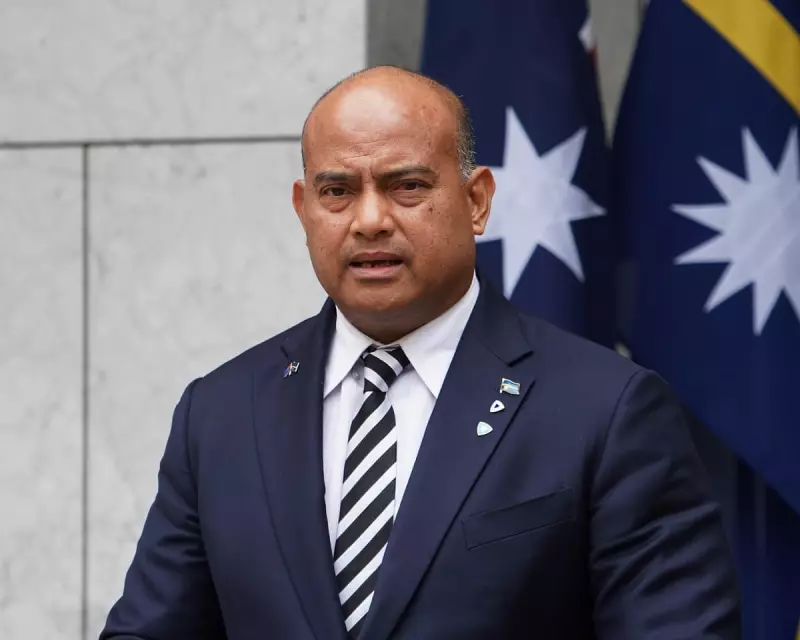
In a significant development that has raised serious legal and ethical questions, the full text of an interview with Nauru's President David Adeang has been revealed, detailing plans that could see refugees returned to their home countries despite Australia's international obligations.
Secret Interview Reveals Controversial Plans
The Australian government had fought to keep the February interview hidden from public view, even securing a federal court non-publication order. However, the complete transcript has now entered the parliamentary record after being read into Hansard by Senators David Pocock and David Shoebridge.
Foreign Affairs Minister Penny Wong had argued that releasing the official translation would "prejudice Australia's international relations and our broader standing in the Pacific". Despite these concerns, the document reveals President Adeang's intention to explore returning refugees to their countries of origin.
Factual Errors and Legal Concerns
President Adeang made several incorrect statements during the interview, notably claiming that members of the NZYQ cohort "are not refugees". Guardian Australia has confirmed that multiple individuals within the group have had their refugee protection claims formally recognised by Australian authorities.
The NZYQ cohort consists of 354 non-citizens released from indefinite immigration detention following a High Court ruling in late 2023. While most had visas cancelled on character grounds due to criminal convictions, they cannot be returned to their home countries because they face persecution there.
At least five members of this group have already been forcibly removed to Nauru and are being held at a regional processing centre on the Pacific island.
Legal Obligations and Chain Refoulement
Australia is legally bound by the Refugees Convention to protect refugees and cannot return them to countries where they face a well-founded fear of persecution. Even if such returns are facilitated through a third country like Nauru, the practice remains unlawful under international law as "chain refoulement".
Both Australia and Nauru are signatories to the Refugees Convention, making Adeang's statements about potential returns particularly concerning for legal experts.
The agreement between Australia and Nauru will see Australia pay Nauru up to $2.5 billion over three decades to accept members of the NZYQ cohort. President Adeang stated that those removed to Nauru would stay on the island for 30 years, unless "we find a way for them to move around, for example; they get to go home".
Criticism and Government Secrecy
Senator Shoebridge told the Senate that President Adeang's claim about the NZYQ cohort not being refugees was "plainly wrong" and raised questions about whether the Australian government had misled Nauruan authorities.
Ogy Simic, head of advocacy at the Asylum Seeker Resource Centre, described the government's secrecy around its offshore program as "deeply alarming". He stated that "the Australian government has effectively outsourced refoulement – paying another country to do what Australia legally cannot".
Sanmati Verma, legal director of the Human Rights Law Centre, accused the government of trying to hide "nearly every detail" of its agreement with Nauru. She expressed concern that "our government has known all along that it might be sending people to their deaths" through either denial of medical care or forced returns to countries they fled.
The translation of President Adeang's remarks is set to remain suppressed for ten years, continuing a pattern of secrecy that has long characterised Australia's offshore processing policies.





